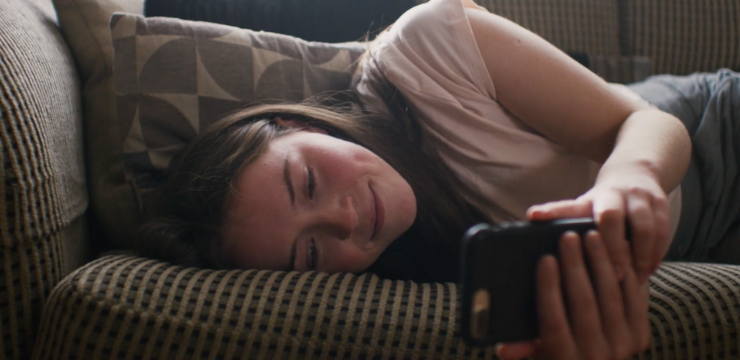
Our overall wellbeing is based on the emotional and physical experiences that we have. As technology is a significant part of life, it is also important to recognise the impact it can have on how we feel. This is called our ‘digital or online wellbeing’, and is essentially about being aware of how being online can make us feel, and making sure that we look after ourselves and other people. This can include paying attention to the impact it has on our mental, or physical health, and knowing how to cope with difficult experiences.
How being online may be affecting your wellbeing.
Our online wellbeing can be influenced by the content we see, the interactions we have with others, the choices we make online, and even how long we spend using technology and the internet. Just like in other areas of life, being online can bring positive and negative experiences and it is a good idea to take time to consider how going online can influence the way we feel, think, and behave.
There are many different factors that could impact on your online wellbeing. For example:
- While social media is a great way to stay in touch with friends and to see what is going on in their lives, it can be hard not to compare this to what is happening in your own life. Remember that people are typically posting their “highlights reel”, and it may not be a fair reflection of their life in general.
- The internet is full of pictures and videos that portray an idealised version of ‘normal’. Measuring how we look against a portrayal of perfection can lead to feeling inadequate or less confident. It’s important to challenge what we see, and remind ourselves that what we see online may be heavily edited or carefully selected to show only what the person wants you to see.
- Is your mood affected by the level of reaction your posts receive? Usually social media shows the best of ourselves, so it is understandable that that emotions and self-esteem can be affected by the likes and comments that our posts receive. If your post didn’t get the response you were hoping for – if you were happy with it, that is all that matters. You are much more than your online persona – remember and celebrate that.
- Looking at the seemingly amazing lives others show online, and the fear of missing out (FOMO), can lead to feelings of inadequacy, or loneliness. However, it is worth remembering that even though someone may be having a great time, they also spend as many boring nights nights at home watching tv. No one lives a perfect life, even though social media may allow it to look that way.
- Not everyone online is kind and supportive, people may say and do things that are inappropriate and hurtful. Cyberbullying and online harassment can happen to anyone and may occasionally even be unintended, but what is said as a joke could be very upsetting to the recipient. It is important to recognise cyberbullying and get advice and support to deal with it.
- Spending too much time online can mean you that you are missing out on real life connections with family or friends, physical activity, or impacting on your sleep. Have a healthy balance of online v offline activities.
Some simple strategies may help to reduce negative emotions, increase your overall wellbeing, and make going online more enjoyable.
How can you be more mindful online?
- Before you post something, think about why you are doing it? Is it because you are looking for appreciation, inclusion, reassurance? Ask yourself why this is important to you.
- Pay attention to the amount of time you are spending online. It’s important to be aware of how it could be affecting your friendships, your family, or your school work. There are lots of apps and devices that help you to manage how much time you spend online. Consider turning off app notifications to minimize distractions.
- Quantity v Quality. It can be very easy to lose track of time online. It’s always a good idea to review what types of things you do online. There’s so many great ways to spend your time online; learning, creating, communicating, entertainment… even looking a cat video can help cheer us up. It’s important to get a good balance of productive and passive time online.
- Make time for the things and people that make you happy. Think about how the content you see online is making you feel. If something comes up that makes you feel envious or not good enough, consider if it’s helpful or realistic to think that way?
- Remember don’t be too hard on yourself. No one is perfect.
- Look after your physical health. Make sure that you are eating well, and getting enough exercise.
- Get support – a problem shared is a problem halved. If something is bothering you, or you are worried about a friend, reach out to someone you trust. There are also many organisations that offer support and advice. For more details on these, click here.
Top 10 tips for managing your online wellbeing
Top Ten Tips for Managing your Online Well-being from PDST Technology in Education on Vimeo.



